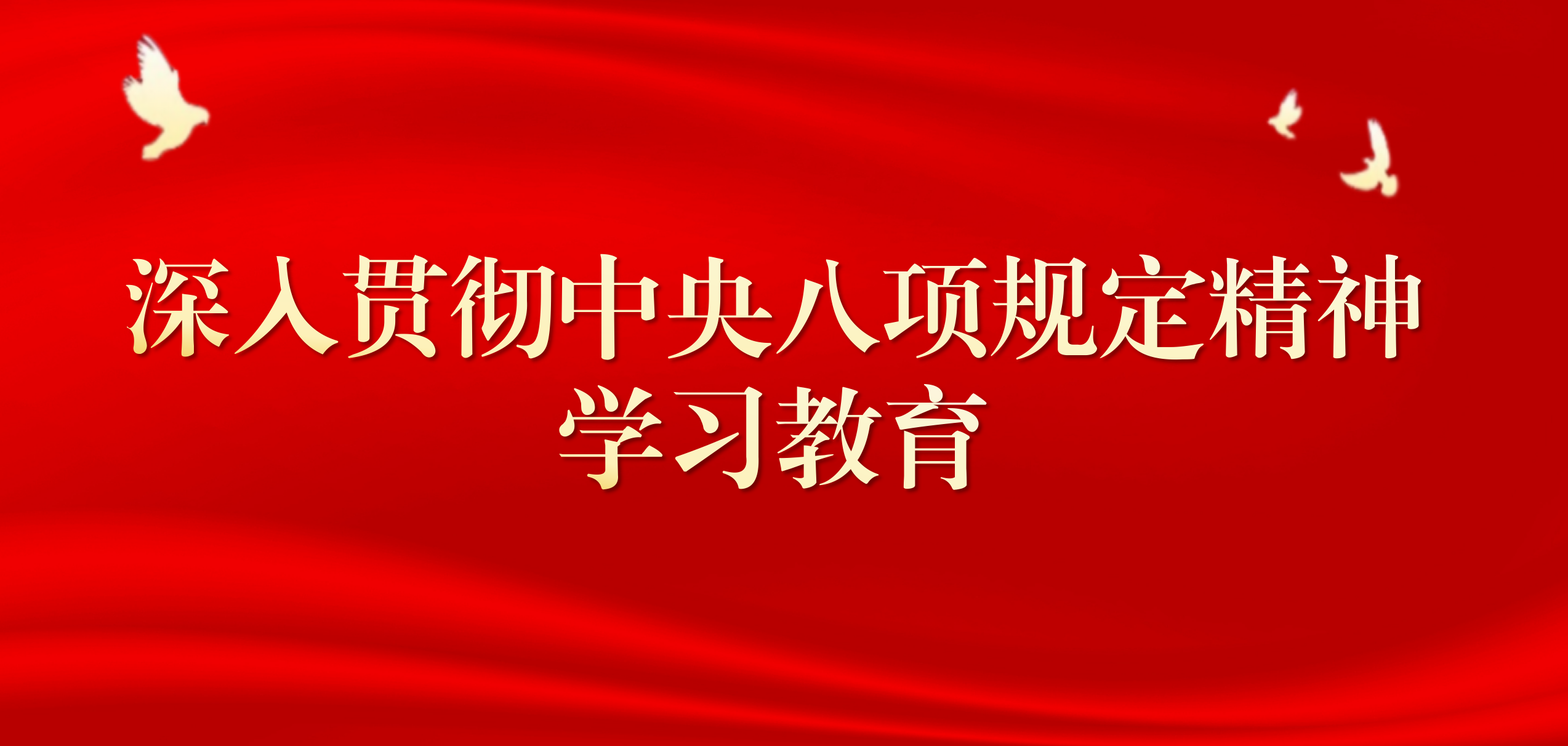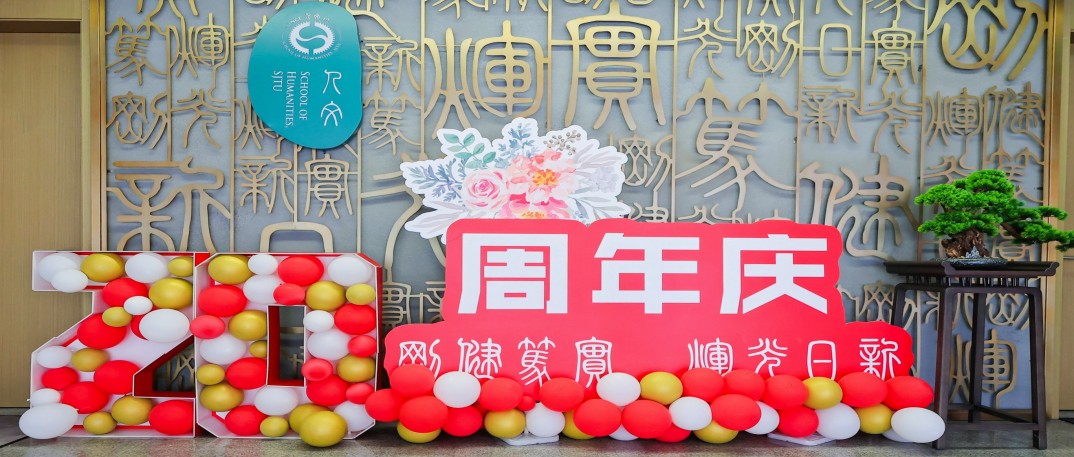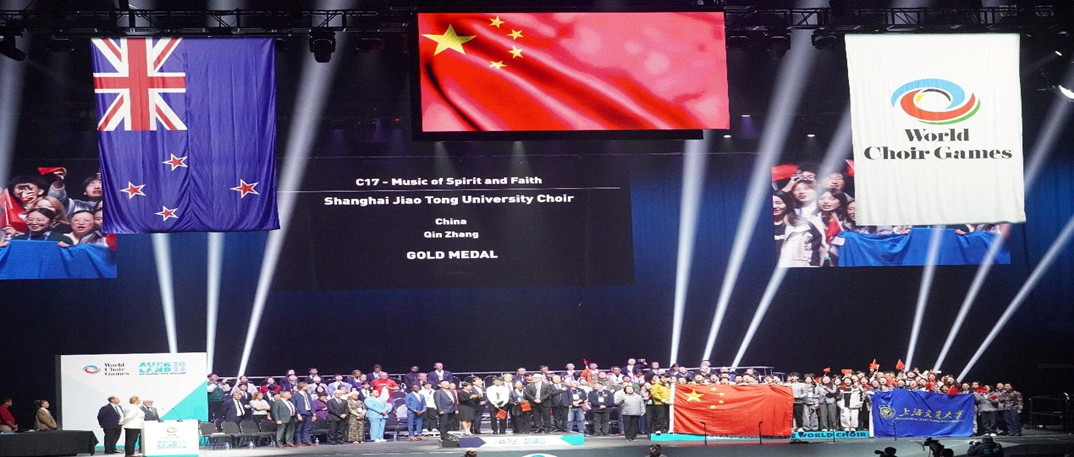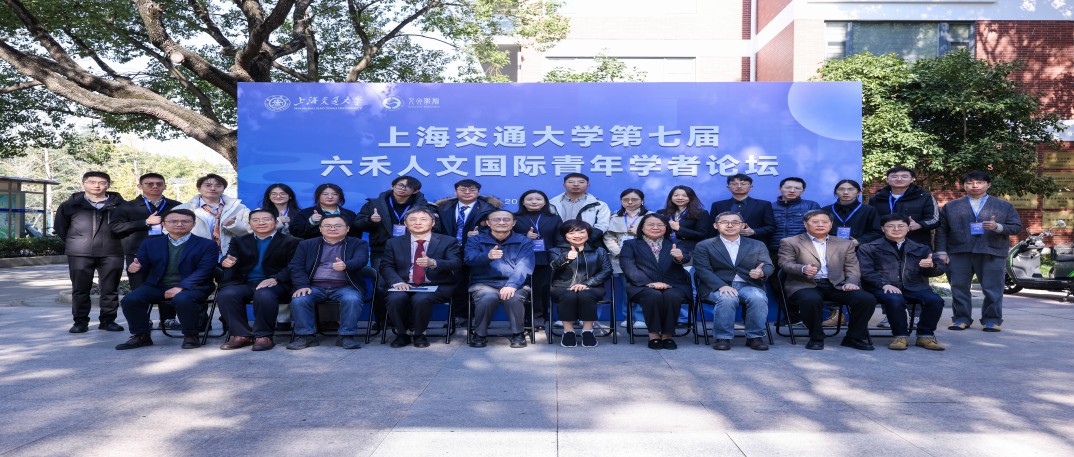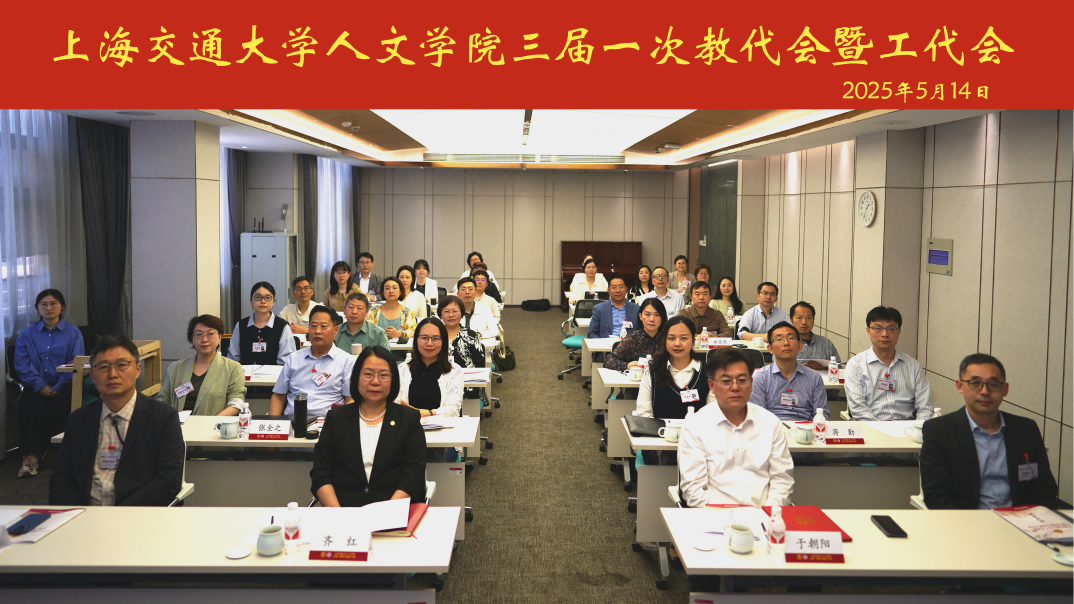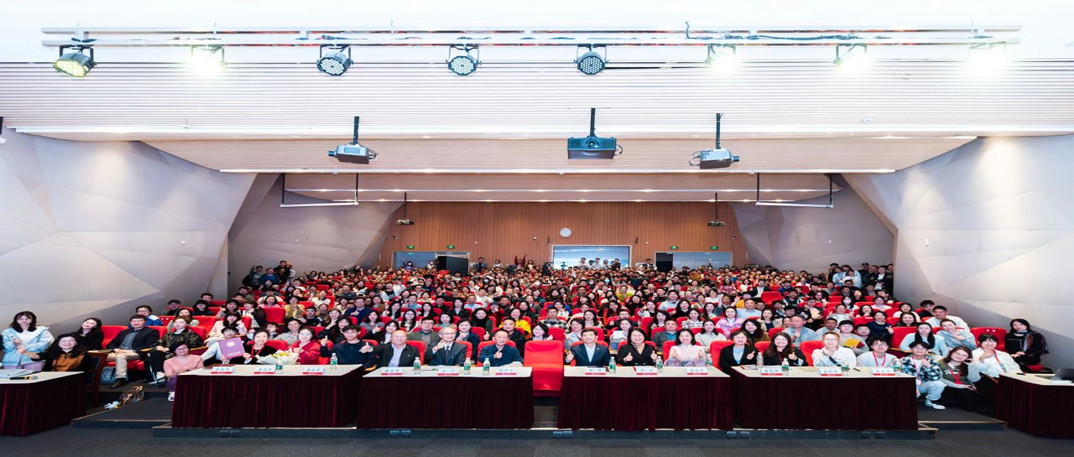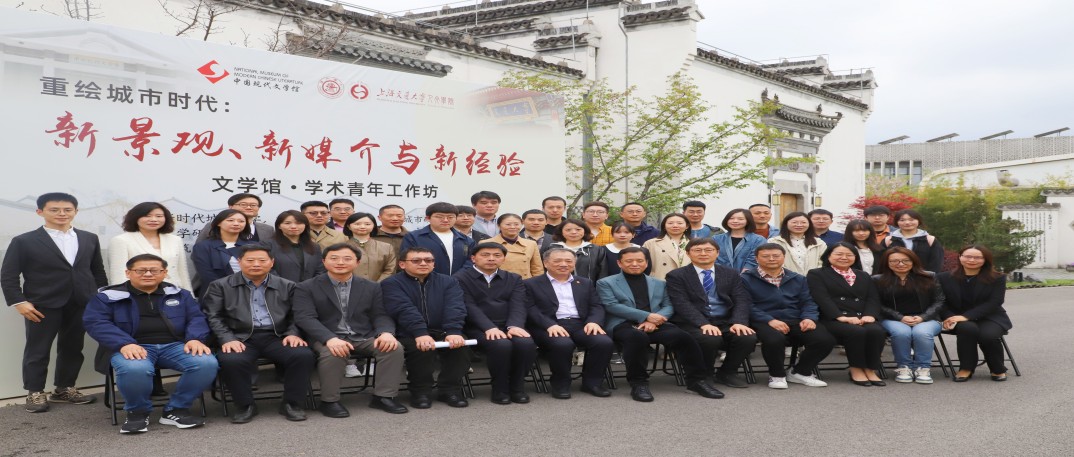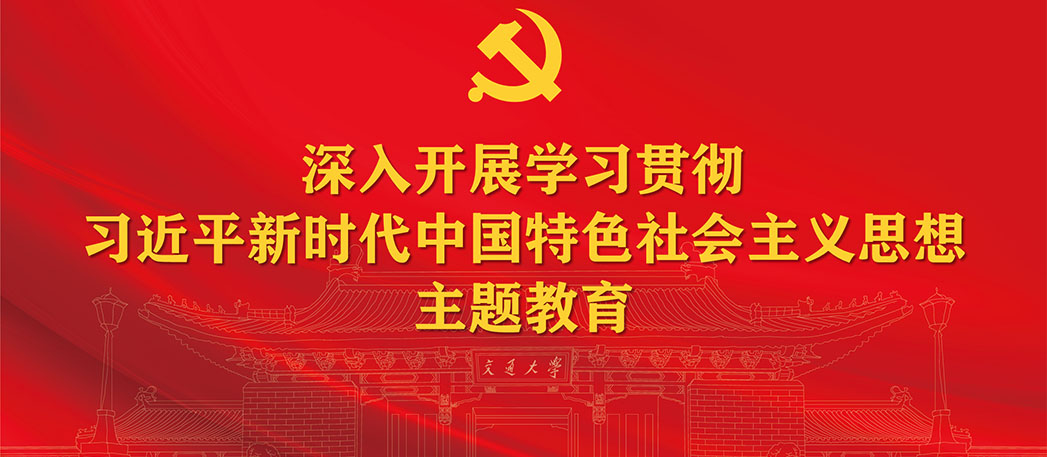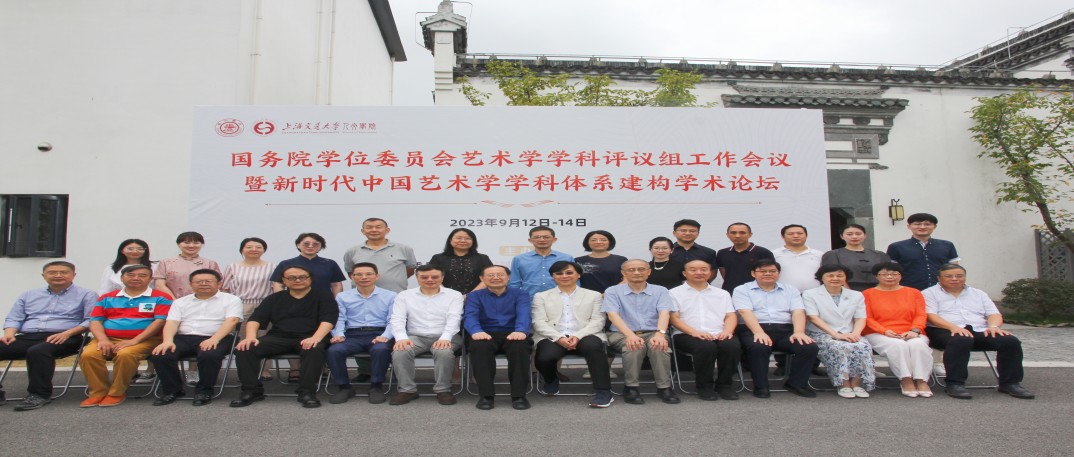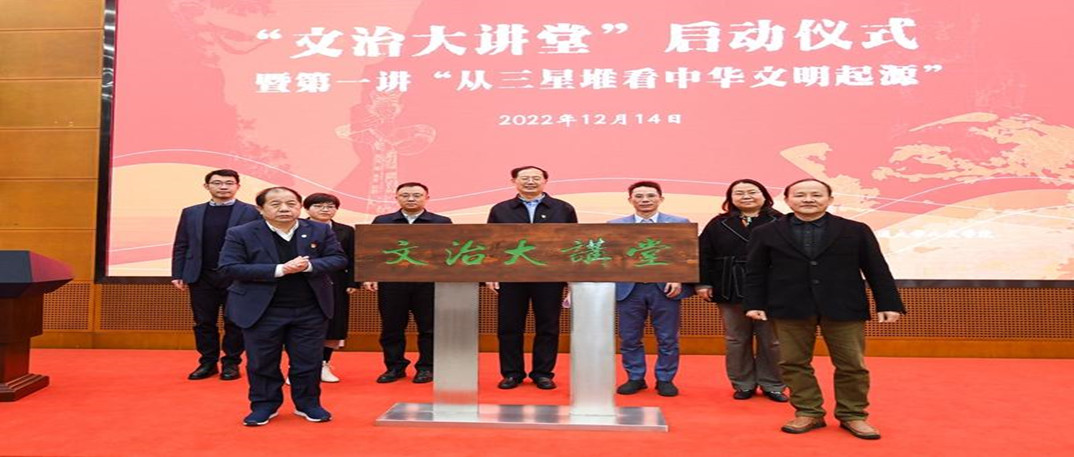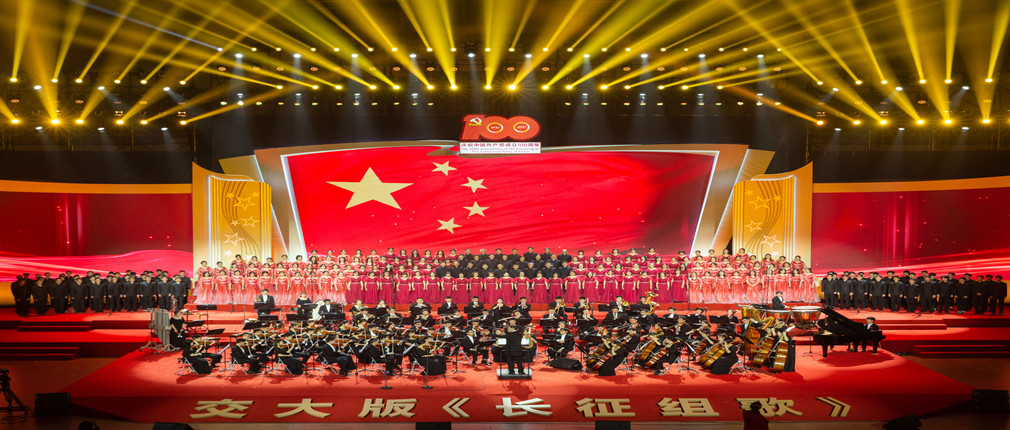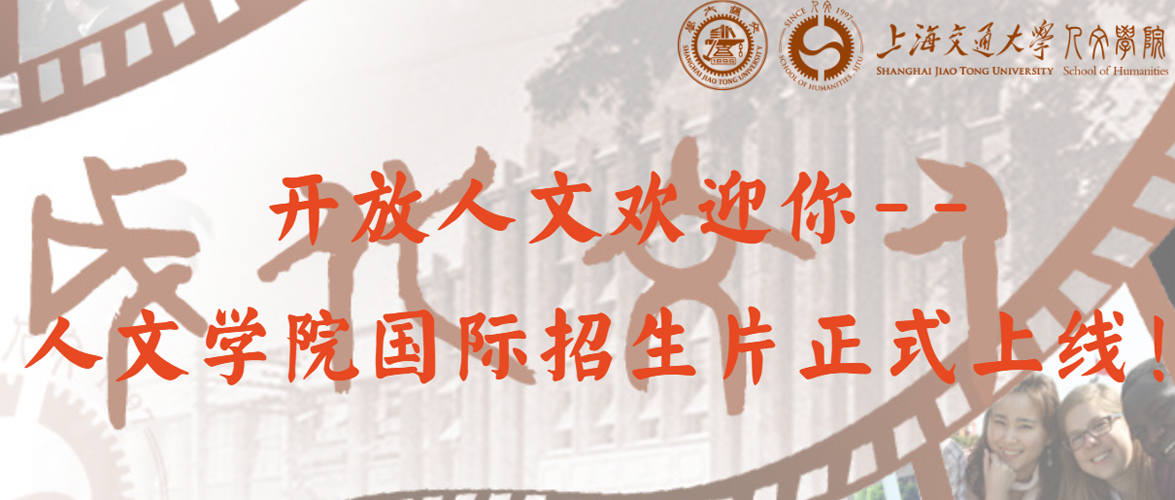尼古拉·利伯拉蒂博士于2021年加入上海交通大学,担任上海外高层次人才计划下的副教授。他是一位哲学家,旨在通过将哲学与艺术和工程学相结合,超越经验转向。他从后现象学的视角研究新型数字技术的影响,他的作品发表在《Phenomenology and cognitive sciences》、《Human studies》和《Foundations of Science》等期刊上。他最新的关于集体生命体生成的研究发表在《Nature》期刊《Humanities and Social Sciences Communications》上。他目前担任现象学与媒体学会的主席,并担任爱思唯尔出版的《New Techno-humanities》期刊的执行编辑。
• Since 2023, President of the Society for Phenomenology and Media, San Diego (CA, USA)
• Since 2024, Associate Editor, Nature journal: Humanities and Social Sciences Communications (AHCI, SSCI, SCI)
• Since 2022, Executive Editor, International Journal New Techno-Humanities by Elsevier (SCOPUS, ANVUR)
• Since 2024, Associate Editor, Metaverse (SCOPUS)
• Since 2021, Associate Editor, International Journal of Human-Technology Relations. I am the editor responsible for the submissions on “AI, robotics and human-technology interaction”
Past Positions
2016 – 2019 Postdoctoral researcher, University of Twente, Dept. of Philosophy, the Netherlands
2014 – 2016 JSPS Postdoctoral researcher, Chukyo University, Dept. Liberal International Studies, Japan
Education
2011 – 2014 Ph.D., University of Pisa (Italy)
1. Liberati, N. “Digital Entanglements and the Emergence of New Materiality. A Phenomenological and Postphenomenological Analysis of Augmented Reality” Mimesis International 2024.
https://mimesisinternational.com/digital-entanglements-and-the-emergence-of-new-materiality-a-phenomenological-and-postphenomenological-analysis-of-augmented-reality/
For an updated list please see:
https://scholar.google.com/citations?view_op=list_works&hl=it&user=6WIM5pwAAAAJ
Google scholar (updated - 10/09/2025):
Citations: 700+ h-index: 15 i10-index: 20
Peer reviewed publications
Journal Articles Published
-
Liberati, Nicola (2025) “Digital Intimacy and Slimy Circuits: Seeping into a “Dirty”
Postphenomenology” Global Philosophy 35, 2 DOI: 10.1007/s10516-024-09739-w (Indexed in AHCI)
-
Liberati, N., Mykhailov, D. “Walking in the shoes of others through brain-to-brain interfaces: a phenomenological approach to the generation of a collective living body”. Nature journal: Humanit Soc Sci Commun 11, 96 (2024). https://doi.org/10.1057/s41599-023-02517-w
-
Liberati, Nicola, Stelarc. (2024) “Interview with Stelarc on digital intimacy,” New Techno Humanities, 2024, ISSN 2664-3294, https://doi.org/10.1016/j.techum.2024.10.001.
-
Liberati, Nicola (2023) “ChatGPT:来自技术哲学的解读”.《上海文化》(文化研究版)2023年6月号目录 pp.31- 38 CNKI CSSI Extended
-
Mykhailov, D., Liberati, N. (2023) “Back to the technologies themselves: phenomenological turn within postphenomenology.” Phenomenology and Cognitive Sciences. https://doi.org/10.1007/s11097-023-09905-2 (Indexed in AHCI)
-
Liberati, N., Kanemitsu, H. & Haiqing, J. (2023) “Introduction: Chinese and Japanese Postphenomenology.” Human Studies. https://doi.org/10.1007/s10746-023-09688-0 (Indexed in SSCI, Scopus)
-
Liberati, Nicola (2022). “Digital intimacy in China and Japan: A phenomenological and postphenomenological perspective on love relationships at the time of digital technologies in China and Japan”. Human Studies, 1-15. (Indexed in SSCI, Scopus)
-
Mykhailov, Dmytro, and Liberati, Nicola (2022). “A Study of Technological Intentionality in C++ and Generative Adversarial Model: Phenomenological and Postphenomenological Perspectives.” Foundations of Science, March, 1–17. https://doi.org/10.1007/s10699-022-09833-5. (Indexed in A&HCI, Scopus)
-
Liberati, Nicola, and Francesco Verso (2022). “Science Fiction Literature and Its Role in Society, Research, and Academia: Interview with Francesco Verso” Prometeica - Revista de Filosofía y Ciencias, no. Especial (August): 117–22. https://doi.org/10.34024/prometeica.2022.Especial.14085 (Indexed in ESCI, Scopus).
-
Liberati, Nicola, and Wu Yan (2022). “Science Fiction Literature and Its Role in Society, Research, and Academia: Interview with Wu Yan.” Prometeica - Revista de Filosofía y Ciencias, no. Especial (August): 112–16. https://doi.org/10.34024/prometeica.2022.Especial.14084 (Indexed in ESCI, Scopus)
-
Liberati, Nicola and Maurizio Balistreri (2022). “Living in the New Era (时代・新生).” Prometeica - Revista de Filosofía y Ciencias, no. Especial (August): 5–10. https://doi.org/10.34024/prometeica.2022.Especial.14157 (Indexed in ESCI, Scopus)
-
Liberati, Nicola (2021). "Phenomenology and Sex Robots: A Phenomenological Analysis of Sex Robots, Threesomes, and Love Relationships". International Journal of Technoethics (IJT) 12 (2), 86-97. https://www.igi-global.com/article/phenomenology-and-sex-robots/281079 (Indexed in Scopus)
-
Liberati, Nicola (2021) "Reflections on an Externalized Digital Imagination". Foundations of Science (2021). https://doi.org/10.1007/s10699-020-09768-9 (Indexed in A&HCI, Scopus)
-
Liberati, Nicola (2021). “La vita nell'oggetto in fenomenologia, postfenomenologia, nuovo materialismo e Arte”. Endoxa: Prospettive sul presente, 29, 97-100, ISSN: 2531-7202, https://endoxai.net/download/
-
Gauttier, Stéphanie and Liberati, Nicola. (2021). "Exploring the Relation Between Q Methodology and Phenomenology: Designing Conditions of Instruction Based on the Phenomenological Concepts of Variation and Horizons". Operant Subjectivity, 42, 33–57. doi:10.15133/j.os.2020.002 http://www.operantsubjectivity.org/pub/876/
-
Rafizadeh R, Manavirad M, Liberati N (2021) “ نقش آواتار در تجربه بازیکن در بازی های ویدئویی ژانر بازی: مهاجم اول شخص [The Role of Avatars in Video Games Genre: First person shooter]” Honar-Ha-Ye-Ziba: Honar-Ha-Ye-Tajassomi, 25 (4), 101-108, DOI: 10.22059/jfava.2019.287355.666299 https://jfava.ut.ac.ir/article_78710.html?lang=en
-
Liberati, Nicola (2020). "The Borg-Eye and the We-I. The Production of a Collective living body through Wearable Computers". AI & SOCIETY , 35, 39-49. https://doi.org/ 10.1007/s00146-018-0840-x. (Indexed in Scopus, INSPEC )
-
Liberati, Nicola ( 2020 ) " Making out with the world and valuing relationships with humans. Mediation theory and the introduction of teledildonics.". Paladyn: Journal of Behavioral Robotics. https://doi.org/10.1515/pjbr-2020 -0010 Volume 11, 108-114 (Indexed in Scopus)
-
Liberati, Nicola and Balistreri, Maurizio (2020) “Living with artificial intelligence: An analysis of moral and philosophical implications of artificial intelligence in our everyday life”, HUMANA.MENTE Journal of Philosophical Studies, 13(37), I-VII . Retrieved from https://www.humanamente.eu/index.php (Indexed in ESCI, Scopus, DOAJ)
-
Rafizadeh R, Manavirad M, Liberati N (2020) “واکاوی نقش آواتار در جهان تخیلی تعاملی بازیهای ویدئویی با استفاده از نظریه بینش دوگانه [The Role of Avatar in Interactive Fictional World of Video Games]”.; Honar-Ha-Ye-Ziba (Honar Haye Tajassomi). The Quarterly Periodical of The Advanced Research Institute of the Arts. 35 (9); 20-27 URL: http://kimiahonar.ir/article-1-1779-en.html (Indexed in ISC)
-
Liberati, Nicola (2019), “Emotions and Digital Technologies. The Effects Digital Technologies Will Have on our Way of Feeling Emotions According to Post-Phenomenology and Mediation Theory” Humana.Mente Journal of Philosophical Studies Vol. 36, pp 292 – 309 (Indexed in ESCI, Scopus, DOAJ)
-
Liberati, Nicola, et al. (2019) “Introduction to “Qualitative ontology in automated information systems and robotics"” . Philosophical Inquiries vol. VII, issue 1, 47-49.
-
Liberati, Nicola (2018). “Phenomenology, Pokémon Go, and other Augmented Reality games. A study of a life among digital objects.” Human Studies, Volume 41, Issue 2, pp 211–232. Printed version. https: //link.springer.com/article/10.1007/s10746-017-9450-8#citeas (Indexed in SSCI, Scopus)
-
Liberati, Nicola and Shoji, Nagataki (2018). “Vulnerability under the gaze of robots. Relations among humans and robots”. AI & SOCIETY , 1-10. https://link.springer.com/article/10.1007/ s00146-018-0849-1 (Indexed in Scopus, INSPEC )
-
Liberati, Nicola (2018). "Facing the Digital Partner: A Phenomenological Analysis of Digital Otherness". Glimpse 19, pp. 99-107. (Indexed in EBSCO Discover)
-
Liberati, Nicola (2017). “Teledildonics and New Ways of `Being in Touch': A Phenomenological Analysis of the Use of Haptic Devices for Intimate Relations”. Science and Engineering Ethics, Springer, 23 (3), 801-823 . https://link.springer.com/article/10.1007/s11948-016-9827-5 . Printed version. (Indexed in SSCI, Scopus )
-
Liberati, Nicola (2017). “The Emperor's new augmented clothes. Digital objects as part of the every day. ” Multimodal Technologies Interaction 1(4), 1-26. doi:10.3390/mti1040026 (Indexed in INSPEC (IET) , Scopus)
-
Liberati, Nicola (2017). “Teledildonics and other kinkities. A phenomenological analysis of the “being in touch” through the new computer technologies”. Glimpse 18, 103-110. DOI: 10.5840/glimpse20171812. (Indexed in EBSCO Discover )
-
Kawamoto, Tetsuya and Liberati, Nicola (2017). “Floating in the Middle of the Soccer Field. An Immersive Education Initiative for Being Present into the Scene ”. Journal of Immersive Education ( JiED Journal of Immersive Education ).
-
Liberati, Nicola (2016). “ Technology, Phenomenology and the Everyday World: A Phenomenological Analysis on How Technologies Mould Our World ”. Human Studies , 39 (2), 189-216, doi: 10.1007/s10746-015-9353 -5. http://dx.doi.org/10.1007/s10746-015-9353-5 . Printed version. (Indexed in SSCI, Scopus)
-
Liberati, Nicola (2016). “ Augmented reality and ubiquitous computing: the hidden potentialities of augmented reality ”. AI & SOCIETY , 31 (1), 17-28, 2016. ISSN: 0951-5666. doi: 10.1007/s00146 -014-0543-x. http://dx.doi.org/10.1007/s00146-014-0543-x . Printed version. (Indexed in Scopus, INSPEC )
-
Liberati, Nicola (2016). “ Wearables, Borg and a common living body ”. Glimpse 17, 56-61 DOI: 10.5840/glimpse2016178. (Indexed in EBSCO Discover)
-
Liberati Nicola et al. (2016) “ The Enactive Approach to Qualitative Ontology: In Search of New Categories ”. Editorial for Special Issue on “The Enactive Approach to Qualitative Ontology: In Search of New Categories” Humana.Mente Journal of Philosophical Studies 31, III-XIII, ISSN: 1972-1293. (Indexed in ESCI, Scopus, DOAJ)
-
Liberati, Nicola and Nagataki, Shoji (2015). “ The AR glasses' “non-neutrality”: their knock-on effects on the subject and on the giveness of the object ”. Ethics and Information Technology 17 (2), 125-137, ISSN: 1388-1957, DOI: 10.1007/s10676-015-9370-0, http://dx.doi.org/10.1007/s10676-015-9370-0 . (Indexed in A&HCI, SSCI, Scopus )
-
Liberati, Nicola (2014). "Leib and technologies: relations and co-foundation". Investigaciones Fenomenológicas 11, 165-184, e-ISSN: 1885-1088 (Indexed in ESCI).
-
Liberati, Nicola (2014). “Augmented reality, phenomenology and the disclosure of our “personal” creator ”. Glimpse 15, 55-58. (Indexed in EBSCO Discover)
Journal Articles already accepted
-
Liberati, Nicola (already accepted). “Being digitally intimately connected. Mediation theory and the generation of new sexual intimacy thanks to the use of new computer devices”. Phenomenological Association in Japan.
- Proceedings
-
Eggink, Wouter and Ozkaramanli, Deger and Zaga, Cristina and Liberati, Nicola “ Setting the stage for responsible design ” Proceedings of DRS2020 , Volume 2, pp. 713-730 ISBN 978-1-912294-38-1 https:/ /drs2020.org/wp-content/uploads/2020/08/DRS2020_Proceedings_Vol_2.pdf
-
Kawamoto, Tetsuya and Liberati, Nicola and Verdicchio, Mario (2019). “ Perceptual 3D vision with multiple Video Byōbu ”. ACM VRIC '18 Proceedings of the Virtual Reality International Conference-Laval Virtual
-
Liberati, Nicola (2018). “ Phenomenology and the object's constitution through technology ”. Proceedings of the XXIII World Congress of Philosophy , Vol 27, pp 67-71.
-
Liberati, Nicola (2015). “ Augmented “Ouch!”. How to create intersubjective augmented objects into which we can bump ”. Mixed and Augmented Reality-Media, Art, Social Science, Humanities and Design (ISMAR-MASH'D ), 2015 IEEE International Symposium on. 21-26, Sept. 29 2015-Oct. 3 2015. doi: 10.1109/ISMAR-MASHD.2015.14. URL: http://ieeexplore.ieee.org/stamp/stamp.jsp? tp=&arnumber=7350730&isnumber=7350713.
-
Liberati, Nicola (2014). “[Poster] A single co-lived augmented world or many solipsistic fantasies? ”. Mixed and Augmented Reality-Media, Art, Social Science, Humanities and Design (ISMAR-MASH'D), 2014 IEEE International Symposium on, 71-72, 10-12 Sept. 2014, doi: 10.1109/ISMAR-AMH.2014.6935443.
-
Liberati, Nicola (2013). “ Improving the embodiment relations by means of phenomenological analysis on the “reality” of ARs ”. 2013 IEEE International Symposium on Mixed and Augmented Reality-Arts, Media, and Humanities (ISMAR-AMH) 0 , 13-17, 2013. doi: http://doi.ieeecomputersociety.org/10.1109/ISMAR-AMH.2012.6483983.
- Edited Special Issues
-
Liberati, Nicola and Romele, Alberto and Gauttier, Stéphanie (accepted 2023/2024) “Digital Bodies: Pleasure, Pain, and Society”, Axiomathes (Indexed in AHCI, Scopus)
-
Liberati, Nicola and Kanemitsu, Hidekazu and Haiqing, Ji (2022/already accepted) “Chinese and Japanese postphenomenology: A path to Sino-Japanese collaborations in postphenomenology”, Human Studies (Indexed in SSCI, Scopus)
-
Liberati, Nicola and Balistreri, Maurizio (2022) “Living in the New Era” Prometeica (ESCI, Scopus)
-
Liberati, Nicola et al (eds.) (2020) “Living with artificial intelligence. An analysis of moral and philosophical implications of artificial intelligence in our everyday life.” Humana.Mente Journal of Philosophical Studies 37. (Indexed in ESCI, Scopus, DOAJ)
-
Liberati, Nicola et al (eds.) (2019) “Special Issue based on 4th International Congress on Love and Sex with Robots”. Paladyn: Journal of Behavioral Robotics. (Indexed in Scopus)
-
Liberati, Nicola et al. (eds) (2019) “Qualitative ontology in automated information systems and robotics”. Philosophical Inquiries. (Indexed in Scopus)
-
Liberati Nicola et al. (eds) (2016) “The Enactive Approach to Qualitative Ontology: In Search of New Categories”. Humana.Mente Journal of Philosophical Studies 31. (Indexed in ESCI, Scopus, DOAJ)
Book chapters (refereed)
-
Liberati, Nicola ( 2022/already accepted). " Digital emotions. A way of structuring emotions through digital technologies " in Emotions, Communication, Interaction .
-
Liberati, Nicola (2022/already accepted). “Phantasy and technologically embedded imagination: A phenomenological and postphenomenological analysis” in The Philosophy of Imagination: Technology, Art, Ethics
-
Liberati, Nicola (2019). “ Mediation theory between Pokémon Go and the everyday world ”. In: V. Geroimenko (Ed.), Augmented Reality Games I: Understanding the Phenomenon of Pokémon GO by Springer. 51-60
-
Liberati Nicola (2018). “ Achieving a self-satisfied intimate life through computer technologies?”. In: A. Altobrando, R. Stone, T. Niikawa (eds). Self and (its) Realization Information , Palgrave. ISBN : 978-3-319-94699
-
Liberati, Nicola (2018). “ Being Riajuu [リア充]. A phenomenological analysis of sentimental relationships with “digital others” ”. In: Cheok A., Levy D. (eds), Love and Sex with Robots . LSR 2017. Lecture Notes in Computer Science, vol 10715. Springer, Cham, 12-25. (Indexed in CPCI, Scopus, EI Engineering Index)
-
Liberati, Nicola (2017). “ Magic, augmentations, and digital powers. The evolution of the interface in new digital media, and the effects of its disappearance. ”In: Y. Van Den Eede, S. O'Neal Irwin , G. Wellner (eds), Postphenomenology and Media. Essays on Human-Media-World Relations . Lexington Books. 63-77.
-
Liberati, Nicola (2016). " The From Information to Perception: The Emerging of The new new Design of Computer Technologies and ITS Effects " the In:. Gadducci F., M. Tavosanis (EDS) . HaPoC History and Philosophy of Computing, 2015 . IFIP Advances in Information and Communication Technology , vol 487. Springer, Cham. 203-215. (Indexed in CPCI, Scopus, EI Engineering Index)
-
Liberati, Nicola (2015). ""Digital Materiality" and Augmented Reality ". In: Adrian David Cheok (ed) Hyperconnectivity and the Future of Internet Communication , Chapter 4. Lambert Academic Press. ISBN 978-3-659-54415 -6
-
Liberati, Nicola (2015). " Introduzione alla Realtà Aumentata ". In: Roberta Lanfredini (ed) Architettura della conoscenza e ontologia , Mimesis, 315-338.
Book chapters (non-refereed)
-
Liberati, Nicola (2022 / already accepted). " Values and Ancient hyperconnected Objects ." Dini Gabriele the In (ED) Every IS A Gift the fragment . MAD-Murate Art District.
Non-refereed articles
-
Liberati, Nicola, and Chen, Jiaying (2022). “Preliminaries to “Digital Intimacy” The exploration of the changes in values and meanings of intimacy in the digital age” BAU - Container of Contemporary Culture, 10-12.
-
Liberati, Nicola (2016). " Private たちはボーグか? --- Technology による集体としての 主體をめぐって".フッサール研究(Husserl Studies in Japan) 13, 2432- 0552. IS
-
Liberati, Nicola and Nagataki, Shoji (2015). “ Emerging computer technologies: from information to perception ”. Preliminary Proceedings of the Third International Conference on the History and Philosophy of Computing (HaPoC 2015), Pisa University Press srl, 56- 57, ISBN: 978-88-6741-576-2.
-
Liberati, Nicola (2014). " Intersubjectivity and Augmented Reality ". Proceedings of the 16th Annual international conference of the Society for Phenomenology and Media 2, 63-68.
-
Liberati, Nicola (2014). “ Augmented reality, phenomenology and the disclosure of our “personal” creator ”. Proceedings of the 15th Annual international conference of the Society for Phenomenology and Media 1, 91-94.
-
Liberati, Nicola (2012). " Between Leib and Technology: A phenomenology of the living body's constitution ". Glimpse 14, 93-97.
-
Liberati, Nicola (2012). “ Lebenswelt and Its Relations to Culture ”. The 13th International Society for the Study of European Ideas-ISSEI-Proceedings, 2012. http://hdl.handle.net/10797/6150 .
Published interviews
-
Bonfiglioli, Cristina and Liberati, Nicola (2021) “Methodological challenges for a new Philosophy of Technology: Interview with Nicola Liberati” Prometeica (ESCI, Scopus)
AWARDS
2021 海外高层次人才计划 [Overseas High Level Talent Program]
2021 Ph.D. Supervisor title, Shanghai Jiao Tong University, Shanghai (China)
2021 Third Prize, Young teachers teaching competition project at University level (competition at the University level), Shanghai Jiao Tong University, Shanghai (China)
2021 Second Prize, Young teachers teaching competition project at School level (competition at the School of Humanities level), Shanghai Jiao Tong University, Shanghai (China)
2015 Best MASH'D Full Paper Award, IEEE, ISMAR2015, Fukuoka (Japan).
2014 Best Paper by a Returning Member Award, SPM2014, Freiburg (Germany).
GRANTS
2021 ERC Starting Grant (1.5 million EUR), I passed to the interview
2019 Erasmus + (350k EUR)
2019 NWO VIDI 2019 (800k EUR) I passed to the interview
2018 NWO collaboration with Japan (JSPS )-Joint Seminars, Robotics (the formal applicant is Prof. dr. ir. Peter-Paul Verbeek).
2014 – 2016 Postdoctoral fellowship JSPS. (The success rate of this application was 9.8%)
2014 – 2016 Grants-in-Aid for Scientific Research (JSPS) as first applicant (https://www.jsps.go.jp/english/ e-grants/).
MOST IMPORTANT INSTITUTIONAL RESPONSIBILITIES AND COMMISSIONS OF TRUST
-
Since 2023, President of the Society for Phenomenology and Media, San Diego (CA, USA)
-
Since 2022, Executive Editor, International Journal New Techno-Humanities by Elsevier
-
Since 2021, Associate Editor responsible for the submission on “AI, robotics and human-technology interaction”, International Journal of Human-Technology Relations
-
Since 2021, Member of the Scientific Committee, International Conference on Computer Games; Challenges and Opportunities, Iran.


